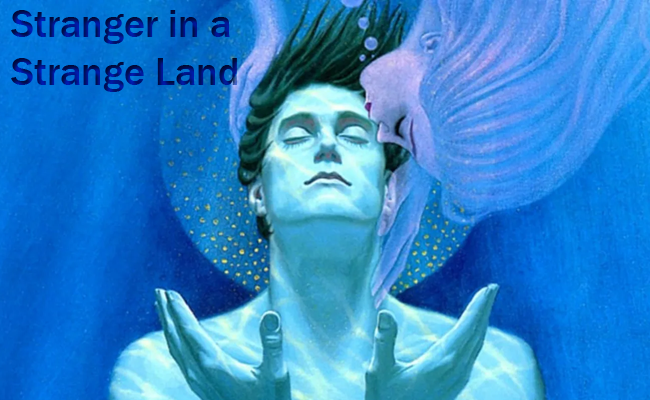Stranger in a Strange Land: A Classic of Science Fiction Literature
Stranger in a Strange Land is a science fiction novel written by Robert A. Heinlein and published in 1961. It tells the story of Valentine Michael Smith, a human born on Mars, who returns to Earth as an adult and struggles to understand the customs and values of human society. In this article, we will explore the themes and significance of Stranger in a Strange Land.
The Plot
The novel begins with the arrival of a spaceship on Earth carrying Valentine Michael Smith, the last survivor of a mission to Mars. Smith was born and raised on Mars by a group of human colonists who were killed by an unknown disease. Smith was raised by the Martians, who taught him their customs and ways of life.
When Smith returns to Earth, he is greeted with suspicion and curiosity by the people he encounters. He is taken in by a nurse named Jill Boardman and eventually becomes involved with a group of people who are interested in his story and his unique perspective on life.
Smith’s understanding of human society is based on the teachings of the Martians, which emphasize the importance of self-control, empathy, and personal responsibility. He also possesses extraordinary abilities, such as telepathy and psychokinesis, which further set him apart from humans.
As Smith begins to explore human society, he becomes increasingly disillusioned with the greed and selfishness he sees around him. He eventually decides to create his own religion, based on the teachings of the Martians, which emphasizes the importance of love and personal responsibility.
The Themes of Stranger in a Strange Land
Stranger in a Strange Land explores several themes that are still relevant today. One of the central themes of the novel is the idea of otherness. Smith is a stranger in a strange land, and his experiences highlight the difficulties that people face when they are confronted with the unfamiliar or the unknown. The novel also explores the theme of individualism, and the tension between personal freedom and social responsibility.
Another theme of the novel is the idea of religion and spirituality. Smith’s creation of a new religion reflects Heinlein’s interest in exploring different forms of spirituality and the role of religion in society. The novel also critiques organized religion, highlighting its potential to become corrupted by power and greed.
The Significance of Stranger in a Strange Land
Stranger in a Strange Land has had a significant impact on science fiction literature and popular culture. The novel was a critical and commercial success when it was first published, and it has since become a classic of the genre. Its exploration of otherness, individualism, and spirituality has influenced subsequent works of science fiction and has helped to shape our understanding of the genre.
The novel has also had a significant impact on popular culture. The phrase “grok,” which was coined by Heinlein in the novel, has entered the popular lexicon as a term meaning to understand something completely and intuitively. The novel has also been referenced in popular music, television shows, and movies, including the hit TV show The X-Files.
In addition, the novel’s exploration of spirituality and religion has had a lasting impact on American culture. The counterculture movement of the 1960s embraced the novel’s emphasis on individualism and personal responsibility, and it helped to inspire the development of new religious movements, such as the Church of All Worlds.
Conclusion
Stranger in a Strange Land is a classic of science fiction literature that explores the themes of otherness, individualism, and spirituality. The novel’s portrayal of a human born on Mars who struggles to understand human society highlights the difficulties that people face when confronted with the unfamiliar or the unknown.
![]()





